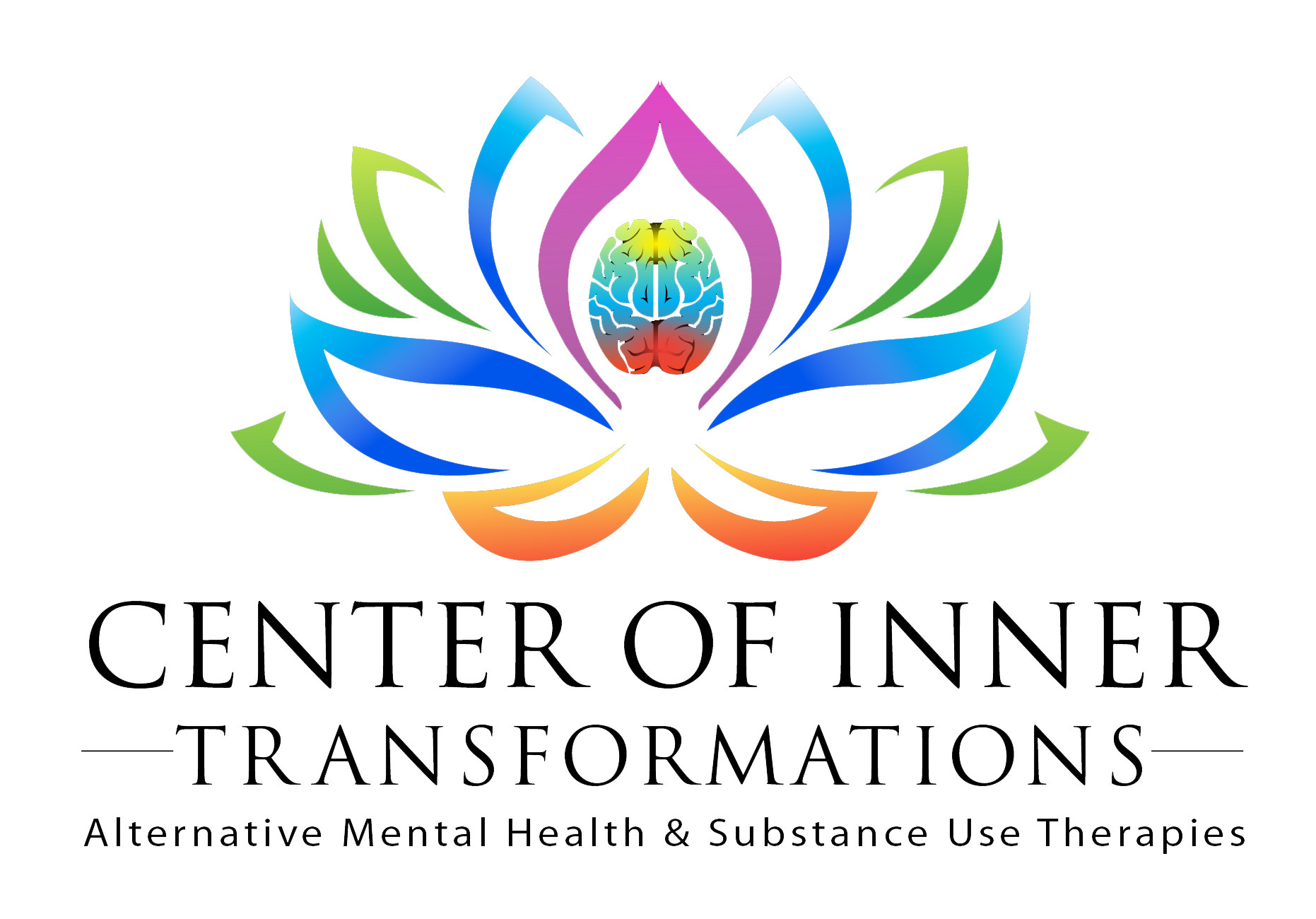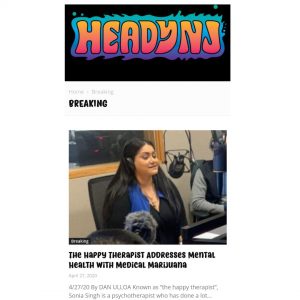Our Executive Clinical Director, Sonia Singh, LCSW, LCADC, also recognized as The Happy Therapist was recently interviewed by HEADYNJ.COM, a publication that reports on everything related to Cannabis news in NJ.

To read the full article read below or click here to read on HEADYNJ.COM:
The Happy Therapist Addresses Mental Health with Medical Marijuana
Known as “the happy therapist”, Sonia Singh is a psychotherapist who has done a lot to treat patients’ mental health issues with medical marijuana.
She is a double board-licensed clinician in New Jersey who, with her staff serves marginalized, vulnerable, and self-medicating mental health patients. They specialize in treating recurring disorders.
“My heart has always been in spreading help and awareness towards critical mental health issues, addiction, substance use, abuse, and naturopathic treatments,” said Singh.
Becoming the Happy Therapist
Initially, Singh worked in rehab centers and received mandatory court-mandated cases for marijuana where patients were dealing with the repercussions of a crime, drug-related offenses, parole, and probation.
Singh found that many patients were self-medicating to treat legitimate issues and getting punished for doing so. So she developed an educational program to help people using marijuana use it medicinally. Singh launched the Cannabis Health Program at the Center for Inner Transformations (COIT).
They began to help people understand the symptoms they were treating and best practices regarding medical marijuana (or clinical cannabis) and dosing.
She initially received a lot of criticism from the clinical community for opening COIT. Singh noted COIT can only treat anxiety and Post Traumatic Stress Disorder (PTSD) since those are the only mental health conditions that currently make a patient eligible for New Jersey’s medical marijuana program.
However, when she goes through a full assessment with patients they often find that depression or a similar issue is concurrent with anxiety or stems from a type of PTSD.
“Everybody’s different,” Singh said, adding not every patient receives a clinical cannabis prescription.
There are more mental disorders Singh is unable to treat.
“Legally I can’t help them, I can’t help them if the patient does not have the symptoms of PTSD or anxiety,” she said. For those who are diagnosed with other mental health issues, COIT seeks a natural path to treat patients that usually does not involve prescribing pills
A typical appointment lasts about two to three hours for each patient. It consists of a comprehensive mental health and substance use evaluation, psychometric testing, and an individualized medical marijuana counseling session.
Singh explained that because her staff is primarily made up of those with a social work background, like herself, in part because she wants the office to be more personable than the average clinic.
In contrast to negative stereotypes, Singh explained that many upstanding white-collar professionals are her patients.
Telehealth for Mental Health Patients
Telehealth has made strides in technology’s ability to respond to the needs of mental health patients during COVID-19. Essential workers have been on the front lines by responding to the increase of critical mental health conditions, such as anxiety, depression, and PTSD.
Allowing medical marijuana telehealth was previously debated in the legislature. It was authorized as a measure to stop the spread of Coronavirus while dispensaries have been deemed essential.
COIT facilitated one of New Jersey’s first telehealth medical marijuana program card drive recently for eligible mental health patients with PTSD and anxiety.
Singh said that because the pandemic created so much anxiety, she has seen many new patients since its start. So far it has worked out well.
“It’s been busy,” she reported. As the happy therapist, she has sought to care for many patients in this difficult time.
However, working via telehealth is different than meeting someone in person.
“I always liked that part of my job where I get to actually connect with the person. It’s not the same,” Singh said about telehealth.

